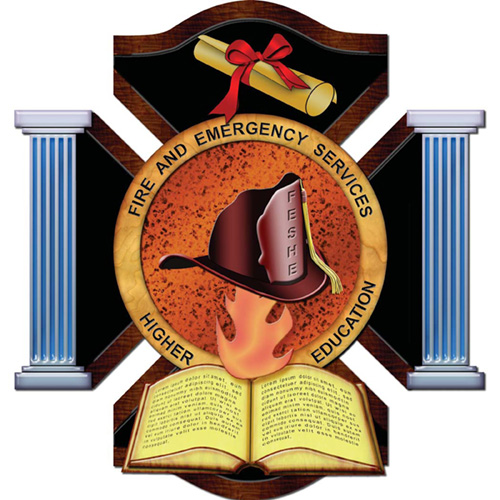The MCC Fire Science Technology program provides high-quality fire service education for entry-level firefighters and current fire service professionals seeking to further their knowledge and skill set.
In 2022, fire departments in the U.S. responded to over 1.5 million fires, resulting in over 3,700 deaths and nearly $18 billion in property damage.
In addition to extinguishing fires, firefighters also respond to various other emergency and non-emergency incidents, including medical emergencies, hazardous materials incidents, vehicle extrication, and other technical rescue incidents.
Firefighters conduct fire inspections to ensure code compliance, as well as provide fire- and life-safety education to the community.
Program highlights
- MCC offers relevant, up-to-date classroom education and practical-skills training that prepares students for the real-world demands of today’s fire service.
- MCC instructors are experienced, highly qualified firefighters and officers who currently serve or have served in Kansas City area fire departments, ensuring that firefighters receive relevant, real-world education and training.
- Attend the fire academy full-time and part-time.
- Offer continuing education classes, EMT training, and Candidate Physical Ability Test (CPAT).
Fire Academy
The MCC Fire Academy offers training that is authorized by the Missouri Department of Public Safety's Division of Fire Safety (DFS), which is accredited by the International Fire Service Accreditation Congress (IFSAC) and Pro Board. Graduates of the MCC-Blue River Fire Academy earn a Fire Science Certificate.
Academy and course offerings
-
MCC offers full-time fire academies in both the fall and spring semesters.
This eighteen-week program provides classroom instruction, skills training, and physical fitness training that will prepare students for DFS certification testing for Fire Fighter I & II and Hazardous Materials Awareness and Operations, as well as National Registry Emergency Medical Technician license testing.
MCC also offers a two-semester, part-time fire academy each academic year.
Classes are held 3-4 nights a week and all day on Saturdays. The fall semester covers all firefighting and HazMat courses, and EMT is covered during the spring semester.
-
Firefighter, HazMat, and physical training are conducted every Monday, Wednesday, and Friday from 7:30 a.m. to 5 p.m. EMT training is conducted on Tuesday and Thursday during the academy. Additional mini-session courses round out this intensive academy experience.
Graduates of the program earn 37 college credits and will be eligible for testing for all certificates and licenses required by most fire departments in the Kansas City area, as well as in many states.
-
As part of each academy, MCC-Blue River offers Candidate Physical Ability Test (CPAT) testing for academy students.
Associate of Applied Science (A.A.S.)
Unlike many other fire-based A.A.S. degree programs that focus solely on technical certifications, MCC's degree is an academically based program that combines the basic fire academy technical training with upper-level courses addressing the challenges that modern fire departments face.
Graduates of the A.A.S. program will be able to recognize, analyze, and address legal, technical, and personnel issues that fire officers routinely encounter.
Many of the requirements for the A.A.S. in Fire Science Technology degree are met upon successful completion of MCC's fire academy, as well as additional fire science and general education courses.
 Firefighters who did not graduate from MCC's Fire Academy may earn credit by certification for several common fire service certifications. Up to 31 credits can be earned for
IFSAC- or Pro Board-accredited certificates for FF I & II, HazMat Awareness & Operations,
Inspector I, and EMT or Paramedic.
Firefighters who did not graduate from MCC's Fire Academy may earn credit by certification for several common fire service certifications. Up to 31 credits can be earned for
IFSAC- or Pro Board-accredited certificates for FF I & II, HazMat Awareness & Operations,
Inspector I, and EMT or Paramedic.
All of MCC's Fire Science Technology courses are recognized by the Fire and Emergency Services Higher Education (FESHE) program and align with FESHE's Model Curriculum for core and non-core courses.
Careers
In 2023, median pay for U.S. firefighters was $57,120/year with jobs expected to increase 4% through 2033.
While most firefighters are employed by municipal fire departments or fire protection districts, other fire service career opportunities include:
- Military firefighting
- Industrial fire brigade
- Wildland firefighting
- Private contractor fire/EMS responders
- Emergency medicine (EMT-Basic or EMT-Paramedic) in hospitals, clinics or private ambulance companies
- Emergency preparedness and management
- Fire investigation (public agencies and private industry)
- Fire protection industry
- Fire- and life-safety consulting
- Fire-safety research
Above average outlook for Firefighters jobs expected to increase 4% through 2033
Visit Occupational Information Network (O*NET) to view careers salary information and employment outlook.